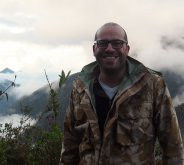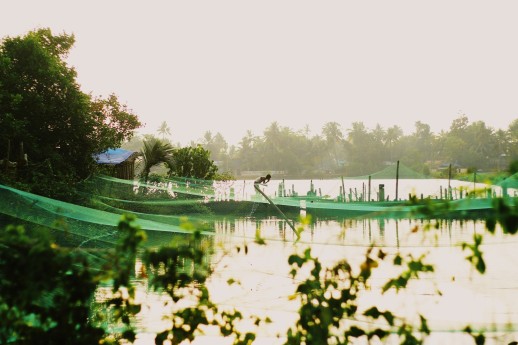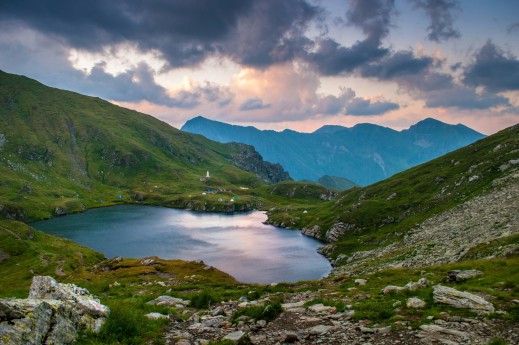Climate & Environment
Climate Change
Terrestrial Biodiversity
Wetlands
Greenhouse Gases Emissions
Trees, Forests & Deforestation
Carbon Cycle
AXA Projects
United Kingdom
Risks to the stability of carbon in tropical peatlands experiencing deforestation and drainage: Quantifying greenhouse gas exchange in response to change
Tropical wetlands boast several significant claims to fame—for better or for worse. They shelter not only some of the richest biodiversity on the planet, but also one of the biggest reserves of greenhouse gases (GHGs), locked away in the vegetation and soil. At the same time, these ecosystems are among Earth’s most vulnerable to climate variability, long-term climate change and human alteration of the environment. Their proximity to some of the most densely populated, fastest-growing economic regions, as in Indonesia, puts them and the rest of the planet at risk: when wetlands are drained and deforested for human use, they are more susceptible to fire, which, in turn, can release huge amounts of carbon into the atmosphere. The effects don’t stop there, though, and Dr. Vincent Gauci aims to find out what happens next when these essential reservoirs of climate gas are disturbed.
We already know that GHGs are emitted from tropical wetlands both by air and in the water, as carbon leaches into rivers from the soil. Yet, how this plays out in the wake of deforestation and fire has been little studied. Dr. Gauci believes that, by overlooking this GHG escape route, we are significantly underestimating how much reaches the atmosphere, where it may contribute to climate change. His team has developed techniques to measure the GHGs – in this case, carbon dioxide and methane – escaping at the water’s surface and from a little known methane emission pathway, tree stems. Their current project on the island of Borneo will determine the contribution to atmospheric levels of these gases, versus how much remains in the water, where it may head, instead, into the deep ocean.
Dr. Gauci is comparing these measurements across wetlands in different states of transformation, from pristine to deforested and burned. Data collected so far demonstrate that there are significant differences in the amount of carbon dioxide being emitted from channels draining wetlands in different states of transformation. By precisely quantifying the impact of human transformation of the land in these important, productive ecosystems, Dr. Gauci’s team is producing knowledge that could prove vital for policymakers deciding how and where land will be used by people or, on the contrary, preserved.
We already know that GHGs are emitted from tropical wetlands both by air and in the water, as carbon leaches into rivers from the soil. Yet, how this plays out in the wake of deforestation and fire has been little studied. Dr. Gauci believes that, by overlooking this GHG escape route, we are significantly underestimating how much reaches the atmosphere, where it may contribute to climate change. His team has developed techniques to measure the GHGs – in this case, carbon dioxide and methane – escaping at the water’s surface and from a little known methane emission pathway, tree stems. Their current project on the island of Borneo will determine the contribution to atmospheric levels of these gases, versus how much remains in the water, where it may head, instead, into the deep ocean.
Dr. Gauci is comparing these measurements across wetlands in different states of transformation, from pristine to deforested and burned. Data collected so far demonstrate that there are significant differences in the amount of carbon dioxide being emitted from channels draining wetlands in different states of transformation. By precisely quantifying the impact of human transformation of the land in these important, productive ecosystems, Dr. Gauci’s team is producing knowledge that could prove vital for policymakers deciding how and where land will be used by people or, on the contrary, preserved.
Carbon in the Air and Water: When Tropical Wetlands are Transformed
To add or modify information on this page, please contact us at the following address: community.research@axa.com

Vincent
GAUCI
Institution
The Open University
Country
United Kingdom
Nationality
British
Related articles
Climate & Environment
Climate Change
Finance, Investment & Risk Management
Societal Challenges
Climate Adaptation & Resilience
Insurance & Risk Management
Environmental Justice
Civil Society & Governance
AXA Project
Italy
AXA Research Lab on Climate Change, Risk and Justice
In response to three research questions: How can the private and financial sectors contribute to a just transition to a... Read more

Gianfranco
PELLEGRINO






